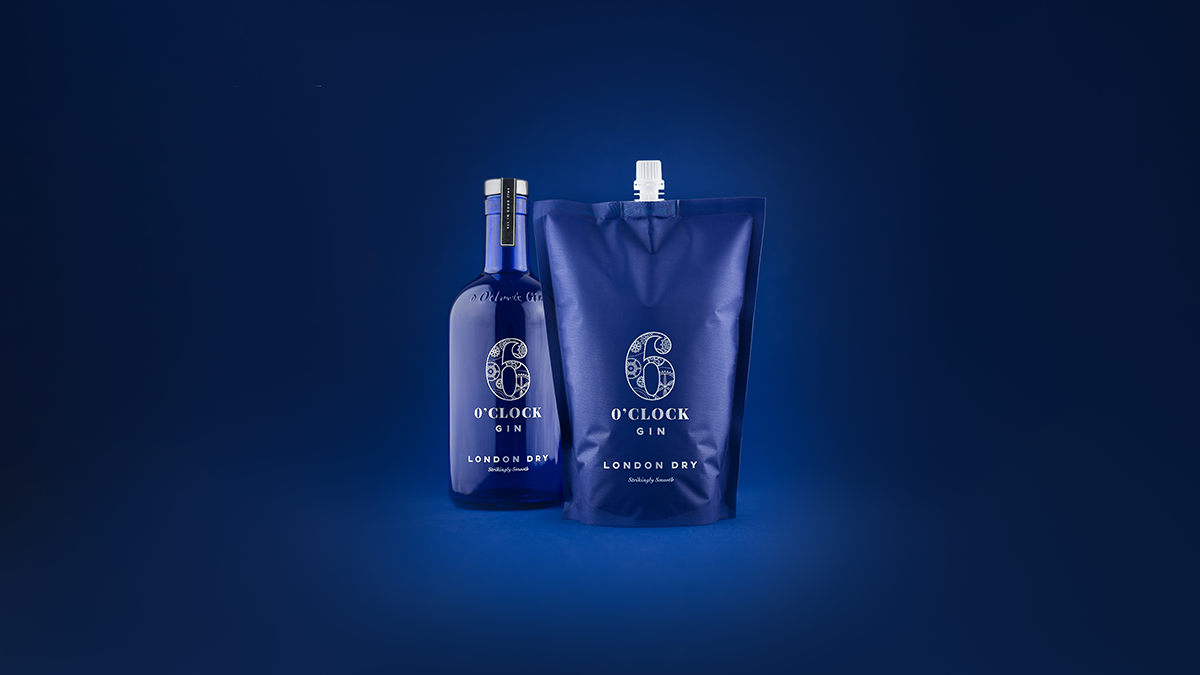
Here at 6 O’clock Gin, we’re always on the lookout for new ways in which we can improve our processes, products and packaging in order to be kinder to the environment. We’ve always been a forward-thinking company, and our entire business started this way over 35 years ago. Edward and Penny (our founders) started creating fruit liqueurs on their Devonshire fruit farm using surplus fruit, as they hated seeing it go to waste.
We’ve grown quite a lot since then, but want to ensure our environmental impact is as minimal as possible. At our distillery in Bristol, we’ve added solar panels to the roof which generate enough electricity to run our still. Plus, we still have plenty left over for other day-to-day needs. We’ve also removed all plastic from the packaging used when we despatch your gin. Oh, and that security seal around the top of the bottle? That’s not plastic. It’s plants.
What’s Next?
Our next focus has been finding a way to get our gin into your hands in a more eco-friendly way. And we’ve done it, with our new London Dry Refill Pouch!
This 70cl pouch contains exactly the same gin that you’ll find in one of our iconic blue bottles. Our London Dry is just as strikingly smooth and fresh, with no half-measures being taken in its creation. This means that instead of sending out heavy glass bottles to you whenever you need a top-up, we can send you one of these instead. All you need to do is decant the entire pouch into one of our bottles, pop the stopper back on, and you’re good to go.
Carbon Emissions
Now, you may be asking how a plastic pouch can possibly be better for the environment than glass? Well, there are several reasons, beginning with the amount of CO2 it takes to manufacture and distribute these pouches is reduced by more than 90%.
Foundries make glass in very large furnaces that burn 24 hours a day, 7 days a week. As a result, 62 tonnes of CO2 is released into the atmosphere over the course of a single day. Not to mention the additional emissions from melting raw materials, which is roughly 185kg of CO2 per tonne of glass.1
The next major issue comes in transportation. From manufacturer to distillery, it then needs to find its way to you, the consumer. And glass is a lot heavier than plastic and aluminium, especially when it’s also full of gin.
Calculating the exact CO2 to manufacture and deliver bottles or pouches to the distillery is very time consuming, and unfortunately beyond the resources of a tiny company like ours. This is because we don’t have the buying power to demand the information from our suppliers. So, how can we know what the emissions savings are? Well, we’ve based our assessment on a Finnish report by Gaia Consulting Oy, published in 2018 . Our (empty) bottles weigh around 650g each, and the consequent CO2 emissions equate to roughly 812g. Comparatively, the pouch weighs just 30g, resulting in only 46g of CO2.2
That means there’s a huge saving of 94.4% between the two methods, and that’s per-bottle. When scaling up to the amount of gin produced in the UK each year, it’s easy to see how much better pouches are for the environment when it comes to transportation.
Recycling
Of course, the next big question comes in the form of recycling. Glass bottles have been widely recycled for decades now, but very little of that glass makes its way back into bottles used in the spirits industry for a number of reasons. The predominant being that producers, and consumers, like their spirits bottles to be crystal clear with no imperfections or impurities. So why not reuse the same crystalline glass bottle for more gin and help save the environment in the process?
Whilst not as widely recycled as glass, these pouches can be recycled by many private companies such as TerraCycle UK. You can drop your empty pouch off at a designated recycling point, or check with your local authority, as some do collect as part of their standard recycling collection.
What happens to the pouches once they’re in TerraCycle’s hands? Well, they turn this waste into workable materials such as metal sheeting, plastic beams, etc. They then sell this to manufacturers who create new products, such as garden benches, playground equipment, garden beds, etc. The result? Less new plastic being manufactured, resulting in a huge reduction in the total amount of CO2 emissions. [More information can be found on TerraCycle’s website.]
It may seem somewhat counter-intuitive to make the shift from glass to pouches. But we want to assure you that it’s definitely the kindest choice you can make for our planet.
If you’re getting to the end of your current bottle of London Dry, then head on over to our pouch page and fill your basket, followed by your bottle, knowing you’ve done your part for the environment.
Now’s the time to make small changes, without sacrifice, and do our part to make the world a bit better. (Plus, you can save a few quid too!).
References:
1 https://ncnean.com/blogs/blog/packaging-the-truth-about-glass
2 Calculations based on Finland’s 2018 national alcohol retailer analysis, includes manufacture and distribution https://www.alko.fi/en/responsibly/sustainability-of-products/beverage-packing-material-has-a-significant-climate-impact